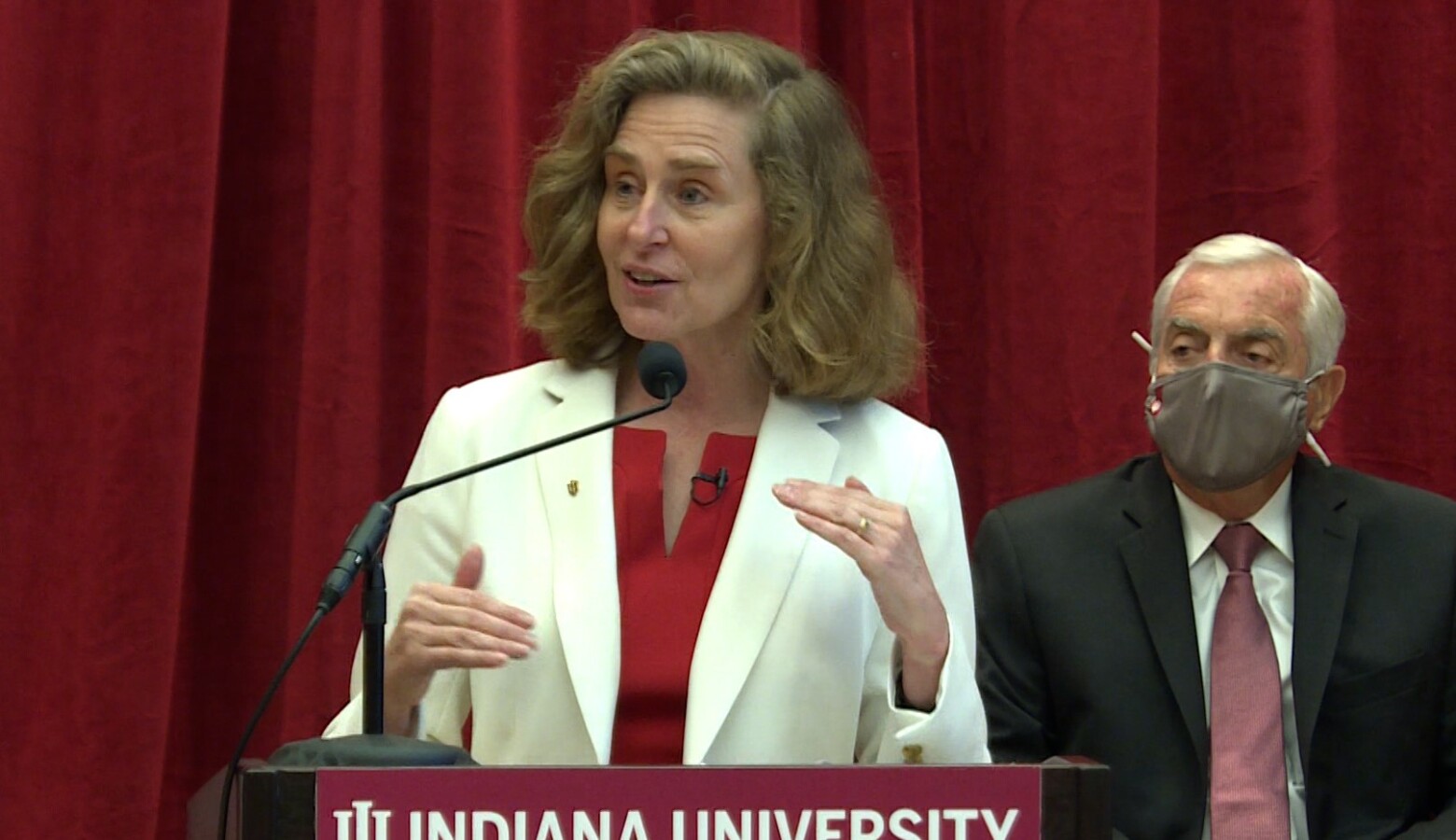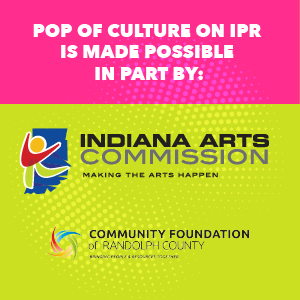IU President Whitten Tests Positive For COVID Despite Vaccination

Indiana University President Pamela Whitten has tested positive for COVID-19, despite being fully vaccinated against the virus.
In an email to IU students and staff, Whitten said she began experiencing mild symptoms this morning and received a positive diagnosis this afternoon.
“While the vaccine is not 100 (percent) effective, I am so grateful to be protected from more serious symptoms,” Whitten wrote.
Whitten said she will continue to work from her home office while COVID-positive.
CDC guidelines recommend vaccinated people isolate for 10 days after testing positive for COVID or experiencing COVID symptoms.
A university spokesperson said contact tracers are in touch with people who have been in close contact with Whitten.
“The [IU Board of Trustees] is grateful for President Whitten’s transparent and forthright leadership,” Dr. Michael Mirro, board chair, wrote in a statement. “We are also encouraged that the vaccine she received is doing what it should, preventing a more serious illness. We look forward to seeing her back on campus soon.”
Whitten assumed her role as president July 1.
How Do Fully Vaccinated People Get COVID?
COVID-19 vaccines work by teaching the body to recognize the virus. So if you’re exposed to it after vaccination, your immune system should be ready to spring into action and fight it.
In studies, the two-dose COVID-19 vaccines by Pfizer and Moderna were around 95 percent effective at preventing illness, while the one-shot Johnson & Johnson shot was 72 percent effective, though direct comparisons are difficult. So while the vaccines are very good at protecting people from the virus, it’s still possible to get infected with mild or no symptoms, or even to get sick.
If you do end up getting sick despite vaccination, experts say the shots are very good at reducing the severity of the illness — the main reason to get vaccinated.
Most people with breakthrough infections experience mild illness, said Dr. William Moss, a vaccine expert at the Johns Hopkins Bloomberg School of Public Health.
In the U.S., people who weren’t vaccinated make up nearly all hospitalizations and deaths from COVID-19.
It’s difficult to determine why any particular breakthrough case happens. How much of the virus you’re exposed to could be a factor, Moss said. Our individual immune systems will also affect how well we respond to the shots. Some people, for example, have health conditions or take medications that could make their immune systems less responsive to the vaccines.
People might also have been exposed to the virus before the shots took full effect. Though less likely, they may have received a dose that was improperly stored or administered, Moss said.
The Centers for Disease Control and Prevention notes variants could be factors in some breakthrough cases, though evidence so far indicates the vaccines used in the U.S. are protective against them.
Health officials are also watching for signs that breakthrough cases are rising, which could signal that protection from the vaccines is fading and boosters are needed.
The Associated Press contributed to this story.

